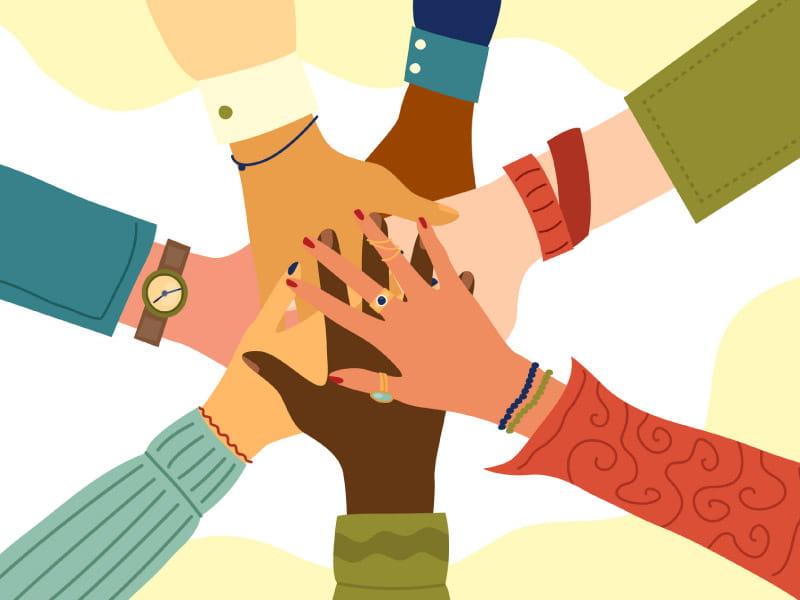What is health equity? How the idea grew – and why it matters
美国心脏协会沙巴足球体育平台,Michael Merschel报道

这个想法和现代医学一样古老,和最新的医学研究一样新颖. No matter how you look at health equity, the conversation involves contradictions.
但其核心是关于疾病和健康的基本问题, say experts who have watched the conversation move from the fringes of scholarly debate to the mainstream of 21st century health care.
术语可以是抽象的,但事实不是. The richest 1% of Americans have a life expectancy that's at least 10 years higher than those in the poorest 1%. 一个人住在哪里可以预测他患心脏病的可能性, high blood pressure, diabetes and more.
Health equity seeks to address that. “卫生公平意味着我们实现了尽可能平等的健康, within the constraints of things we can fix," said Dr. 波士顿大学公共卫生学院院长Sandro Galea说.
Because explanations of health equity overlap with terms such as inequality and justice, metaphors come in handy.
Galea, 谁已经研究健康公平问题25年了, 用这个:如果一个人比另一个人高, that's an inequality that can't be fixed. However, 如果药品被放在只有高个子才能够到的高架子上, the solution involves equity.
他说:“卫生公平就是要解决可解决的卫生差距. "And often, health inequity reflects an injustice, 在这一点上,我们没有对可以解决的问题给予足够的重视."
Putting it in more concrete terms, Galea said there could be many reasons why one person has higher cholesterol levels than another. 但是“如果你的胆固醇比我的低,因为你可以吃西兰花, and all I have access to is potato chips, the question becomes, 'Why is that?'"
In one often debated and viral illustration, equity is likened to people attempting to watch a baseball game over a fence; a short person will need a boost that a taller one doesn't.
But such "catchy and compelling brief definitions leave a lot of blanks to be filled in," said Dr. Paula Braveman, founding director of the Center for Health Equity at the University of California, San Francisco.
Braveman, 家庭社区医学名誉教授, 他说如果你问100位专家健康公平的定义, 你可能会得到100个完全不同的回复. And if you asked her for a definition at different times over the three decades she's been studying the topic, "you might get different answers from me."
如今,她更喜欢的定义来自一个 Robert Wood Johnson Foundation report that she helped write: "Health equity means that everyone has a fair and just opportunity to be as healthy as possible. 这就需要消除贫困等健康障碍, discrimination, and their consequences, 包括无能为力和无法获得待遇公平的好工作, quality education and housing, safe environments, and health care."
这些因素被称为健康的社会决定因素, 这是另一个伴随着健康公平而成熟的学术术语.
这也是为什么关于卫生公平的讨论经常包含历史教训的原因. To cite just one example of how events from nearly a century ago can affect health today, in the 1930s, racist redlining by banks limited where Black Americans could live and whether they could get mortgages. To this day, the neighborhoods they were restricted to are disproportionately exposed to pollution, have less access to healthy food and have higher rates of major cardiovascular problems and heart failure.
加利亚对这些问题提供了另一个比喻. Think of a goldfish in a bowl, he said. "Say it exercises, swims around its bowl, eats healthy food, has a good goldfish doctor. 但是除非你换水,否则它根本不健康."
1966年,“健康公平”一词首次出现在医学研究中, 和关于卫生公平的想法得到了Dr. Martin Luther King Jr. during that decade.
But Galea said concepts about social justice and health go back at least to the mid-19th century, when German scientist Rudolph Virchow, a pioneer of microbiology, linked a typhus epidemic to social conditions and said the solution was not for more doctors or hospitals but for social changes such as higher wages and universal education.
That makes health equity an old idea, Galea said, but it's seen a resurgence in the past 25 years. "And I think the resurgence of interest has been influenced by a recognition that health should be distributed fairly and evenly."
布拉曼第一次听到这个词是在20世纪90年代初, 当时她正在为世界卫生组织工作. In the U.S.她说,学术兴趣最初集中在医疗保健方面的种族差距. “有一场相当活跃的运动关注健康差距, 人群立刻举起了医疗公平的旗帜, 因为这对人们来说是积极的”, she said.
统计数据显示,研究兴趣在20世纪90年代和21世纪初飙升. 布拉曼说,部分原因是“种子已经播下”," and it was an idea whose time had come.
Global politics also helped. 在90年代初苏联解体之前, 他说:“谈论这些问题时,人们必须如履薄冰," Braveman said. 直到全球共产主义的退却,美国的公共卫生专家才意识到这一点.S. 即使使用“社会正义”这个词也能感到安心.
"You really couldn't then," she said. "You could try to talk around it or hint at it using some very concrete illustrations, but you couldn't say 'social justice.'"
Over the next two decades, Braveman has written, the importance of health equity and the social forces that shape health moved "from obscurity and stigma to daylight and respectability."
In 2020, the COVID-19 pandemic brought equity issues into the public consciousness. 冠状病毒的死亡率在种族和民族之间存在巨大差异, and the nation confronted how someone's job, 家庭甚至互联网接入都可能是生死攸关的问题.
"I do think COVID was catalytic," Galea said.
Now, he said, "there's a generation of public health scientists and practitioners who see health equity as being at the very heart of what they do."
Braveman is cautiously hopeful that generation will be able to build on the momentum they've developed. In decades to come, "I would hope that we would move probably slowly but steadily in the direction of greater health equity."
But, she said, progress won't happen without widespread understanding that "there's no health equity without equity.公众必须愿意在“贫困”问题上采取行动, child care, housing discrimination, 优质教育——所有这些健康的社会决定因素."
That makes health equity a political matter. Which, to her, means that the future of health equity will be determined at the voting booth.
Galea同意卫生公平不能脱离政治. But that doesn't mean it has to be divisive, he said, “因为我认为没有良心的人, regardless of partisan stripe, 实际上认为健康差距是一件好事, or conscionable."
He looks ahead with an optimism, informed by the past, that comes from embracing contradictions.
Over the past quarter century, he said, “我认为人们已经充分认识到健康不平等的重要性." And while discrepancies between Black and white Americans are "unacceptably wide," there has been progress.
For example, between 2000 and 2019, the death rate from cardiovascular causes fell, 黑人和白人之间的差距也缩小了, according to a study published in the American Heart Association journal Circulation in 2022. And federal data shows that in 1900, 美国黑人和白人的预期寿命差距超过14岁. In 2021, that gap was down to 5.5 years.
因此,“世界是一个可怕的地方”可能同时是对的, and the world needs to get much better – but the world is a much better place than it's ever been," Galea said. "Those three things are all true."





